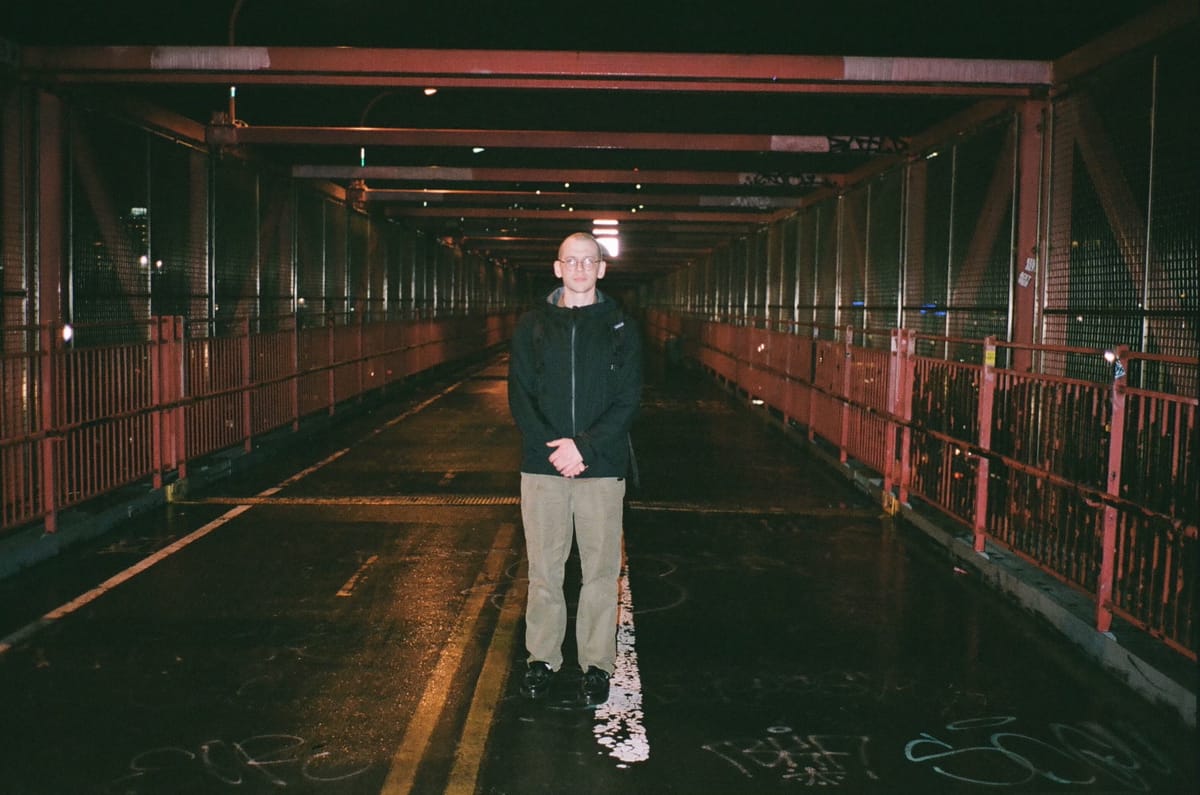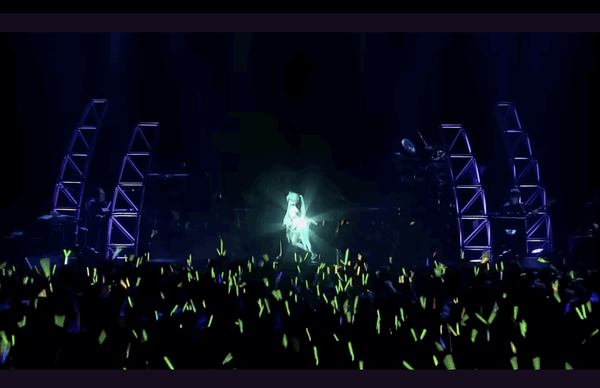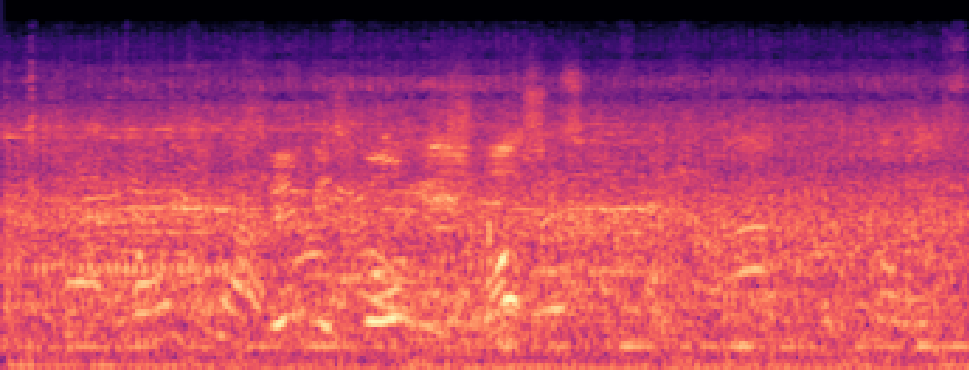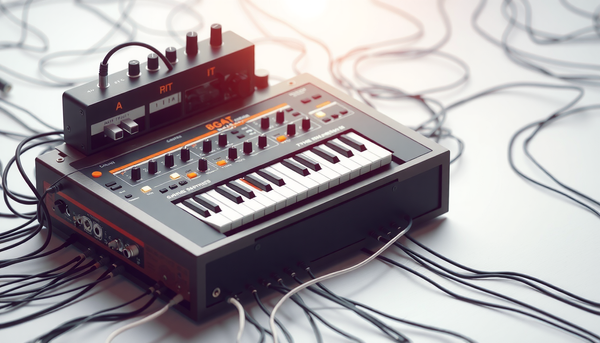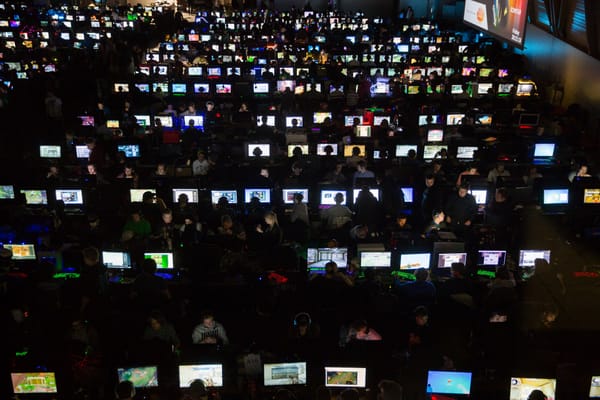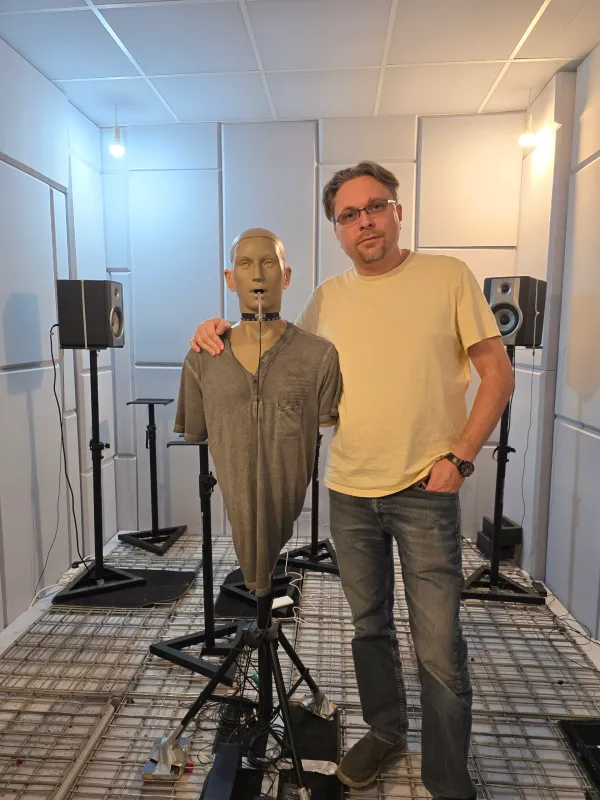Register for free to receive our newsletter, and upgrade if you want to support our work.
I was daydreaming one time about the good old days of the internet when you could stumble upon the coolest or silliest pages randomly to find creativity and community in some unknown corner, so I decided to look for websites that still have this quality in them. This is when I stumbled upon Good Song Club, a music sharing platform that’s completely different to any social media and music tech of today. A completely “algorithm-free” song recommendation system based on the simplest of principles: by the people, for the people.
Naturally, I went down the rabbit hole. I discovered that the founding father of Good Song Club and relentless builder of good internet corners, Roby Saavedra, has quite a few of these running. He made Dig This, a randomized genre/track recommending app based on Discogs; Cool Breeze Unlimited, a personal Mixcloud with thematic mixes ‘for imaginary shores’; Mood Palace, a personal SoundCloud filled with ambient sketches of his; and his BPM Guesser game, on whose leaderboard he holds a mighty second place.
Roby’s projects feel like they were tailor-made for me. They are, first and foremost, about music; but also, they are about community. Both of which you find less and less in today’s social media landscape. To a certain extent, it felt like this strange internet person is trying to do the same as me, as us, at MMN. So, naturally, I reached out.
One ocean and six time zones away, we logged in a video call on a Thursday, which very soon felt less like an interview and more like a friendly chat about music and tech, and how our kind, bordering on the two, is made.
MMN: You are a software developer, a product/UI designer, a producer, and a DJ. Can you tell me a bit about yourself and how these things come together?
Roby: Sure! Professionally, I'm a product designer. I’m working on designing software interfaces. On the side, I do development as a hobby. I've been making websites since I was a kid for fun on really old services like GeoCities and similar sites that allowed you to make your own website. This was before social media, before they started to kind of force you into using a certain platform to express yourself on the internet. So, that was really formative for me, and I've been making websites ever since, but I never felt like I was proficient enough to do it professionally. As for the music and DJ stuff, I haven't DJ’d in years, but I still find the time to make stuff. I think also me getting older and not really wanting to go out as much has prevented me from DJing as much as I used to, but I still scratch that same itch by making stuff in Ableton and sharing mixes online. So, I’m trying to stay involved in the music scene, whether it's just strictly electronic or dance music, or outside of that. There are so many niche subgenres that I'm interested in exploring, which kind of led me into my projects like Dig This and Good Song Club. It’s an extension of those interests.
I’ve listened to your mixes on Cool Breeze Unlimited, and they’re for sure not for the clubs.
Oh yeah, I wouldn’t play those in a club for sure. That’s an older project I haven’t touched recently but I’m keen to get back to it. These projects are just for me to kind of stay sane even if no one listens, but I’m happy to hear that you listened to a couple.
I wondered if I'd found everything. Starting out from Good Song Club, I discovered Dig This, then Cool Breeze Unlimited, then Mood Palace, then the BPM guesser… There was always a next one to find. Is there anything else?
Yeah, it's funny that I ended up with this kind of network of weird side projects. I think the first interactive project I made was just trying to learn how to do backend coding, so I just made a guestbook for myself to hearken back to the old days of the internet. Having a guestbook on your website was pretty much the extent of your social aspects on those early websites. It was kind of nice to build something that didn’t have any of the modern trappings of social media that are designed to keep you engaged and stuck on their platform. It’s just designed to leave something there and not really come back and check.
My household is 100% consisting of half-software engineer/half-music heads, so I’m noticing a pattern here. One reason, I guess, is that these are both pretty geeky things. Do you think these areas influenced each other in your case, or do they generally?
It's a good question, I hadn't really thought of it in those terms. I liked the point you made about these being two “geeky subjects”. I think learning a programming language requires a bit of an obsessive personality, you know, you have to be able to commit to learning this really esoteric way of thinking. And music also attracts the same kind of personality, I think.
It's funny, the first website that I made was a fan site for Rage Against The Machine. Through that, I kind of strengthened my appreciation for the band as well as learned the foundations of software engineering/web development. So, there’s a kind of nexus point for the two things. My interests had driven a lot of the decisions that I made as far as my projects go, all of them are somehow music-related.
I was also thinking about music, especially electronic, and software both being very mathematical.
It's interesting because when I got into synthesizers and tried to understand, for example, FM synthesis, then I was going down rabbit holes of looking at diagrams and weird algorithms that I couldn't understand and probably will never understand, and then I realized that is just the same thing as the kinds of stuff that you would see in an electrical engineering textbook.
It’s funny how in the right context it becomes engaging. Something I would have totally been turned off by in the context of a science class, I find interesting in the context of music.
Some of your projects, especially Good Song Club, have such a strong concept that I feel like maybe you had a goal in mind, not just for fun.
I didn't really have any long-term aspirations for it. I just thought if I could get it off the ground and get it to work, then maybe me and a few of my friends would use it. And for a long time it really was just me and three or four friends with the occasional random person who managed to find it somehow. Then, at some point, a larger Instagram account shared it, and I had a huge influx of people starting to use it, which was really exciting and kind of scary as well. There was a worry that, you know, it could be overrun by people with bad intentions or simply trolls who post random things, not music.
Like skibidi toilet bots.
Exactly. But I’m pleasantly surprised that the people who were drawn to it are very genuine and interested in the idea of sharing a song that they like and engaging with the community. So, now the long-term goal is to stick with it and see it evolving, add features that I noticed are missing and fix problems.
I’m also worried that it might become something larger than I would like it to be. Part of the reason I built it was a rejection of the already established platforms like Twitter, Facebook, or Instagram, where your interactions and usage are mediated by these forces and interests that are outside of your own. The like button on Good Song Club, for instance, is something I’m not sure about. It’s nice to be able to quickly voice that you like a song, but it’s worrisome that it becomes a popularity contest. I wouldn’t want people to be discouraged from posting a song because it might not get the engagement they hoped it would. So, I’m trying to think of ways to escape those established social media trappings.
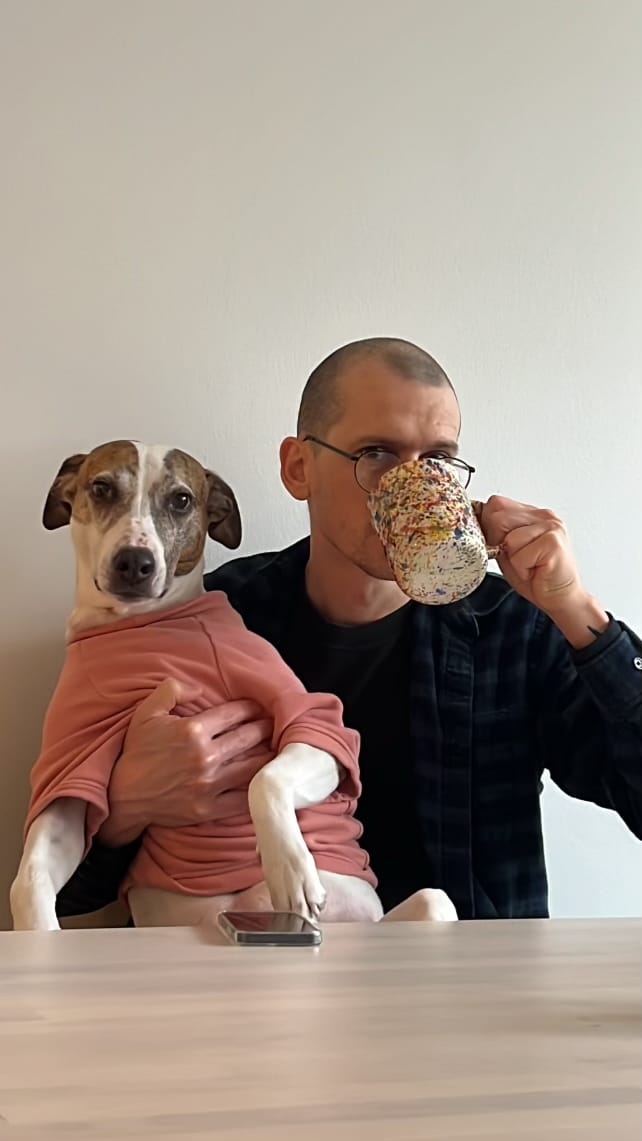
How did the popularization of DSPs[1] influence your music listening habits and view on music culture as a whole?
I don’t use them anymore. When Spotify came out in America around 2010, I thought it was just amazing, you know, the idea of having access to anything you could ever want to listen to at any moment. But I found that I wasn’t as adventurous in my listening and collecting of music as I was prior to that. In the 2000s I would subscribe to a bunch of music blogs where people would post album reviews, and then beneath you could download the album. It was piracy, but it’s how I discovered new music. It was truly amazing, and some of the music I had discovered is still in my daily rotation to this day. Once that died out and the streaming platforms took over, I was finding myself listening to the same stuff over and over again, not really putting in the effort to find new things. There were editorial playlists, but it bothered me that it was very difficult to find other users’ playlists unless they were sharing them explicitly. I know there are automated AI generated ones that are devoted to your day or something now, but that’s still out of your hands, the curation is a black box. The reason I left Spotify was to reclaim some sense of autonomy in my music discovery.
Artist compensation is a whole other issue that’s problematic with streaming platforms. That’s hard to avoid anywhere without being really explicit about purchasing stuff from the artist directly through Bandcamp or going to shows.
So, what do you do now? Are you reading music blogs again, whatever’s left of them, or do you use your own tools for discovery perhaps?
There are still a couple of music blogs I browse but not as frequently as I used to. I really enjoy reading Bandcamp daily, I try to check that every day. I still enjoy collecting actual physical media, I’ve been collecting records for a long time and also browsing tape labels. There’s something really special about listening to music on cassettes, where there’s a level of mystery involved as to where it will start playing when you jump back into a listening session. You really need to pay attention to the tracklist.
Digging in an actual store offers that element of surprise. Similar to when you’re researching a topic at a library, when you find a book on the shelf and realize how many other books are covering a similar topic, that feeling is hard to capture in a digital space.
Obviously I still listen to music online, mainly on YouTube, so I’m not completely off algorithms. As much as I hate to admit it, I think YouTube’s algorithm is pretty good. I find very interesting music amongst the recommendations in the sidebar.
I’m reading the “Spotify book” by Liz Pelly titled Mood Machine (a funny resemblance to your Mood Palace, by the way). There are quite a few blood-boiling corporate money-making schemes of the company introduced in there promoting easy listening and generic background music (and eradicating genres like lo-fi in the process), or algorithmically directing listeners where the big bucks are made (at cheaply batch-bought stock music, sometimes referred to as the works of “fake artists”). To me, Good Song Club felt more like a direct response to the, to say the least, morally questionable techniques of DSPs like Spotify, rather than a response to social media such as Twitter.
The original impetus for creating it was born out of my experience as a user on Twitter or Instagram. Being a music fan, when I find a new song, I get excited and want to share it. But I found that it was just so difficult on these platforms. With Spotify, the issue would be their annoying 30-second player that allows you to listen to just a little section of the song. It was designed in such a way that if you wanted to listen to the whole song, you’d have to click that link and go to their platform. Which is fine; it’s their prerogative, they’re allowed to do whatever they want with their service, but it was annoying as a user. On Twitter’s side, they have every incentive to keep you on the platform, so they would make it even more difficult, introducing a bit more friction in the process. For example, with a YouTube video, it’s a 50-50 chance that it would be an actual embed or just a hyperlink that has no meaning whatsoever and on which people will be reluctant to click.
So, ultimately, the song you wanted to share with people is never getting engaged with, you’re kind of just sharing it with the void. And 90% of the time I’d only want to post music on these apps because I’m a nerd and I have nothing else to talk about. So, I wanted to have a better experience, and I knew there are people out there who have the same impulses or, like, insufferable music nerds who just want to share stuff with each other.
I quickly discovered that YouTube was the only provider that would work because I wanted people to be able to listen to the whole track and not limit that to that 30 seconds Spotify chooses for you. It would have been an option to just allow people to share hyperlinks to their respective platforms, but that would also be kind of annoying on the user’s side. I gave myself a challenge to figure out a way to make it work entirely within the site.
At the end of the day, you’re just an evil tech bro who doesn’t want their users to leave their platform.
Yeah, I know, I’m the same. (laughs)
The anti-algorithm stance was more of an afterthought. I'd love to say that that was the manifesto the whole time, but only after a while of sharing and discovering stuff did I realize that this is ultimately what the website is about.
Like a giant community playlist of people who are sharing a song for a variety of reasons that are unique to them. Each of these songs carries an association for people, and I love it when people share their story and connection to a song, their history, and memories they carry with it.
Like when their father, who’s no longer with them, used to play it in their car; that’s so special, and you don’t get that through some sort of automated feed system like a DSP. There’s this other angle that I didn’t anticipate but find so riveting and exciting.
Do you think it’s still possible to build communities around music? What are the biggest obstacles, and why are there so few of them?
I think it’s possible for sure but difficult. The first reason that comes to mind is money. You know the moment I mentioned before when I was getting this huge spike in usership? Up until that point, my server costs were free because I never crossed the paid threshold. When more people started using it, for a few months it just spiked way above that threshold, and I was paying out of pocket just to keep the website alive. I know, poor me, that people are enjoying and engaging with this thing that I’ve made… (laughs) It was a good problem, but it was also costing me a bit of money. And I didn’t want to ask people for handouts. In the end, I included a link to a Buy Me a Coffee account where people can donate, but it felt weird. Another option would’ve been implementing ads, which just would have made me sick. So, that’s an obstacle, that it isn’t free to foster a thriving community on the internet, you have to come up with some sort of crowdfunding or use an ad service to keep these systems afloat, especially as they grow.
I think driving awareness is difficult if you’re indeed trying to stay away from these large platforms. You have to meet people where they are. You can either do that within the confines of, like, a Facebook or Twitter group, or you could advertise on these platforms and tell people, ‘hey, come over here’. And then you have to play by their rules. Most of these rules are reasonable and good and provide a safe space for people to engage, but, you know, you’re beholden to those terms. Often people get banned for no apparent reason. On top of that, some of these platforms themselves have been usurped by people. I think the biggest is X, which is now run by a tech oligarch who’s using it to consolidate his own power and strengthen his own interests, so yeah… Sometimes I feel like the only way out is to just build the alternative, hence Good Song Club. I don’t know, maybe that was the reason for your magazine as well, there was a void in the things you’re interested in and waiting to be filled. That’s the power of the internet, it’s open for you to do whatever you want.
Not sure it was primarily a void or rather just, as you’ve said, our insufferable music nerdness having to find a way out. But what I’m experiencing lately is that these platforms are actually the worst at building communities. You’re not going to Instagram or TikTok to interact with other people, just to look at an endless feed of them doing stuff.
Yeah, social media is driving it even further. You don’t have any hand in creating, it’s just an algorithm feeding off of you and learning from your interactions. Like, try to form a coalition of like-minded people on TikTok… You’re so stratified, you have no idea who else is out there. At best, maybe you can look in the comments, but that in itself is just a minefield of the worst toxic behavior. Not saying Facebook was better, but there you had some tools for group facilitation, so there were at least some forums where you could interact with others.
Back to music: Dig This builds on top of Discogs, which has what’s probably the closest to a commonly agreed-upon set of genres, though there are some quite obscure ones like Skweee or Barbershop, just to name a few I encountered on the site. I imagine if you built something like this, you might have a special place in your heart for genre discovery. So, what do genres do for you?
I feel like as a human being, I gravitate towards compartmentalizing things into their respective subjects, so they’re useful. It’s also interesting that most of those genres I never heard of come from cultures that I have no affiliation with and a limited understanding about. For example, I discovered really cool music out of India while building the website. Besides a very small set of Bollywood or a couple of Ravi Shankar ragas, I didn’t know anything about Indian music, and there’s a whole world of genres and subgenres that I’ve been exposed to just out of curiosity.
From the perspective of making music, not that I’m a serious musician, I catch myself thinking about creating stuff in terms of already established genres and following the kind of guidelines of specific styles. It’s a good guidepost to understand what it means for a song to fall under that category but also understand that you have the ability to digress from it.
It’s similar to language, I assume. Once you learn how to speak, it becomes difficult to think of ways to express yourself outside of those limits.
Well, everyone is just the combination of their experiences. It’s also how genres evolve, like UK garage was specific to the experiences of people in and around London at that time. And I think it has a resurgence right now, I hear it in K-pop and popular music, and it becomes its own thing. And the speed at which genres are popping up and getting attached to a name is speeding up too.
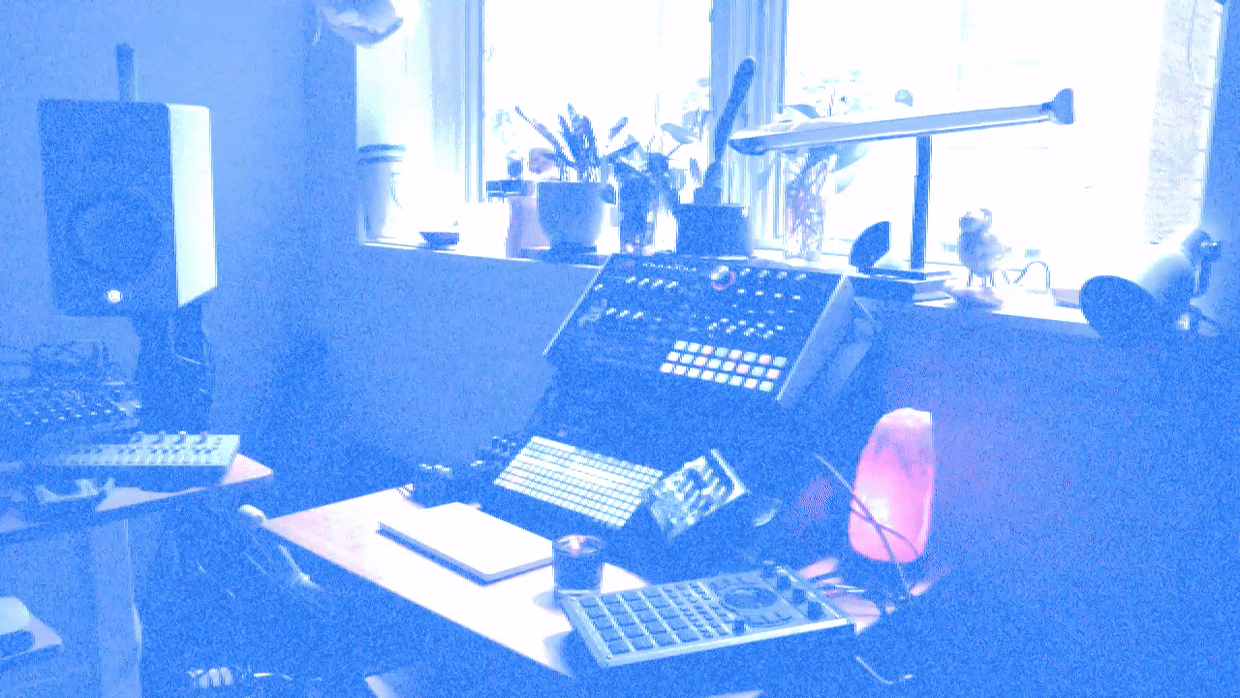
You make music under the name Doris Saturday, which you mainly self-release on your Bandcamp, with a few exceptions on the label Mechanical. It’s a project bordering on something serious and somewhat a joke, where thought-through concepts like commissioned artworks or albums vs. EPs exploring a certain style can live alongside album descriptions like “Songs I made after getting laid off from my job”. What does making music mean to you?
It’s a hobby, but it’s something I do take seriously as a creative outlet. I am real with myself that the music industry is a very cutthroat business, so I’m not going to put all my eggs in that basket. I don’t have a serious background in music or production, I just picked up and taught myself through tutorials and stuff. Music is important to me, and it’s fun to contribute to that world, whether or not anyone listens. And it’s very fulfilling to have something, for example, on a Bandcamp page, because musicians I respect also have that, so in some strange ways, I feel like we’re on the same level.
How much did you practice to get the second highest score on the BPM guesser leaderboard?
Ah, I was so mad. (laughs) I can’t get anywhere near that score, I’ve given up. But yeah, a lot. That whole idea came out of a game of my girlfriend’s. She downloaded a metronome app on her phone and kept asking, ‘Do you know how fast this is? Do you know how fast that is?’. I was having so much fun, and I thought someone has to make this into a game.
No good answers: favorite BPM?
As a listener, I really enjoy something around 115-120. Stuff out of the early ‘80s, like boogie or post-disco type of music, they always put me in a good mood.
As a producer lately, I’ve been doing 130 and even 160 BPM. I mean, that sounds like a really aggressive tempo like you’d hear in gabber or a techno club, but I’m trying to make something that feels easygoing, delicate. Fast but soft. That’s what I’m going for now.
Thank you for this chance to speak, I had a lot of fun talking to you.
Good, good. I always enjoy talking about this stuff, but I can’t get a friend to cross the street to engage me on these topics, so thank you for the opportunity. (laughs)
"Digital Service Provider" a.k.a. music streaming services like Spotify. ↩︎
This article is brought to you as part of the EM GUIDE project – an initiative dedicated to empowering independent music magazines and strengthen the underground music scene in Europe. Read more about the project at emgui.de.
Funded by the European Union. Views and opinions expressed are however those of the author(s) only and do not necessarily reflect those of the European Union or the European Education and Culture Executive Agency (EACEA). Neither the European Union nor EACEA can be held responsible for them.
